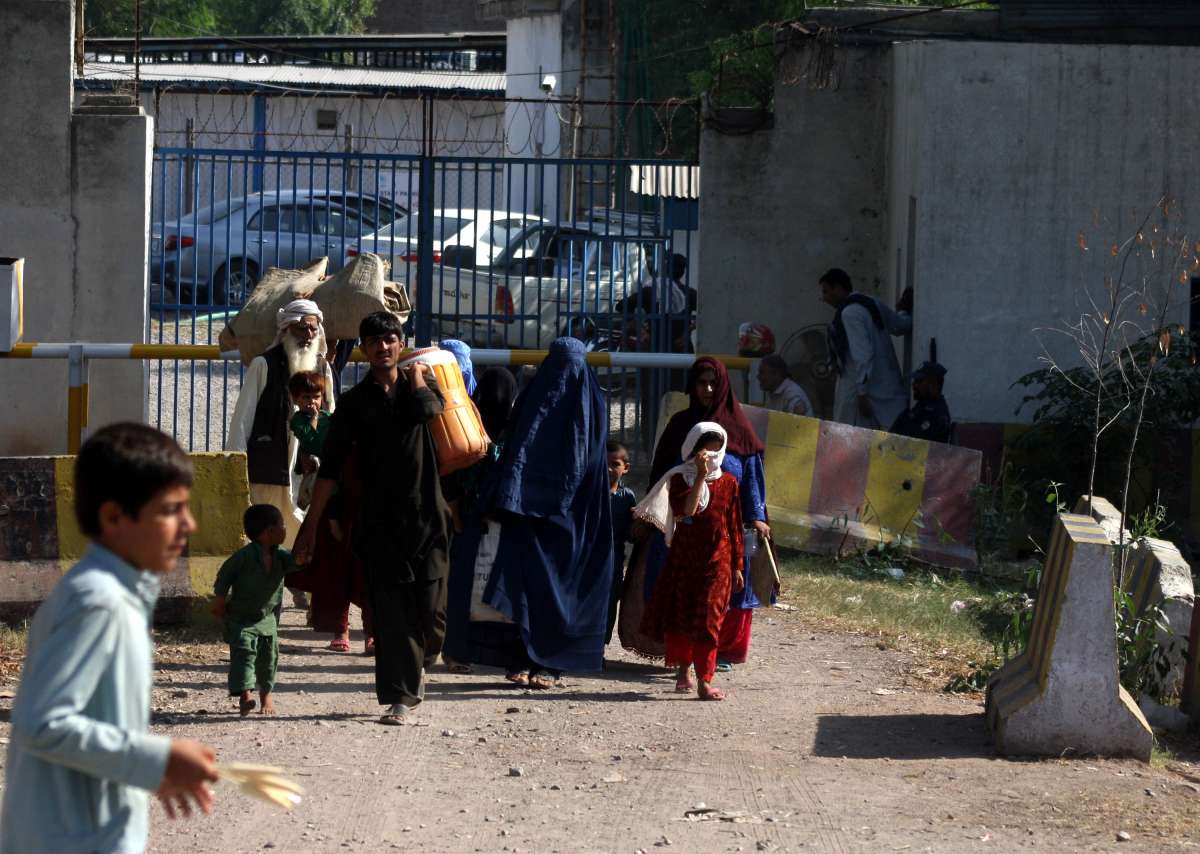The UNICEF report highlights that the economic downturn has led to an increased demand for humanitarian aid in Afghanistan….reports Asian Lite News
The humanitarian situation in Afghanistan has worsened due to the economic crisis, according to a report by the United Nations International Children’s Emergency Fund (UNICEF) covering the period from August 2021 to March 2023, TOLO News reported.
The report highlights that the economic downturn has led to an increased demand for humanitarian aid in Afghanistan.
Economic expert Abdul Nasir Reshtia expressed scepticism about the effectiveness of such aid, emphasising the need for development projects to address poverty and unemployment in the country, as reported by TOLO News.
In contrast, the Taliban-controlled Ministry of Economy attributes the rise in poverty to international sanctions.
Deputy Minister of Economy Abdul Latif Nazari, cited frozen assets, banking restrictions, and commercial constraints as factors contributing to the country’s economic challenges.
“The sanctions imposed on the people of Afghanistan, the assets of the Afghanistan people that have been frozen, and the banking and commercial restrictions that have been imposed in violation of international law, are the main factors of the spread of poverty in Afghanistan,” he said.
Despite the differing opinions on the impact of aid, he urged the continuation of assistance from aid organisations.
UNICEF’s projections for 2024 indicate that 23.3 million people, including 12.6 million children, will require humanitarian aid in Afghanistan.
The complex interplay of economic challenges, international sanctions, and the ongoing need for aid underscores the multifaceted nature of the crisis facing the Afghan population, TOLO News reported.
It’s worth noting that the Taliban administration has disputed the UN report and has emphasised the importance of children’s rights in the country.
Meanwhile, as poverty grows in Afghanistan, the number of youngsters, seen working on the streets in the country has seen a drastic increase, raising concerns among human rights and children’s organisations.
Since the Taliban seized power, Afghanistan has become one of the worst places to live, especially for children whose fundamental rights are being compromised amid the strict rules and regulations of the de facto authorities.
Following the sanction by the international community on the Taliban, as it took control, the country has faced financial, acute humanitarian, and human rights crises.
Following the Taliban’s return to power in August 2021 and their crackdown on the rights and freedoms of Afghan women and girls, Afghan women have been leading miserable lives.
Girls are banned from education beyond sixth grade, including university, and women are barred from most jobs and public spaces. (ANI)
Needs of 40% of Afghan Kids Remain Unmet
In its most recent study, the International Rescue Committee (IRC) stated that 40 per cent of children in Afghanistan do not meet their needs, emphasising that one-third of the country’s youngsters are involved in labour work, according to Khaama Press.
According to the organisation, many youngsters have been forced into onerous employment by their families as a result of growing poverty following the emergence of the Taliban administration.
The report, of the International Rescue Committee stated that humanitarian groups in Afghanistan have failed to meet even the most basic needs of Afghan children.
Previously, the United Nations Children’s Fund (UNICEF) declared that children in Afghanistan are forced to work in hazardous conditions to survive. According to a 2022 report, 131,400 children, some as young as five years old, have been separated from their families and are subjected to violence and abuse in northern Afghanistan, reported Khaama Press.
According to the UN, children’s access to basic services in Afghanistan has been hampered by prolonged conflicts, displacement, severe poverty, food insecurity, a lack of livelihood opportunities, and a lack of investment, and there has been an increase in recruitment, abuse, and sexual violence against them.
It’s worth noting that the Taliban administration has disputed the UN report and has emphasised the importance of children’s rights in the country.
Meanwhile, as poverty grows in Afghanistan, the number of youngsters, seen working on the streets in the country has seen a drastic increase in number, raising concerns among human rights and children’s organisations.
Since the Taliban seized power, Afghanistan has become one of the worst places to live, especially for children whose fundamental rights are being compromised amid the strict rules and regulations of the de facto authorities.
Following the sanction by the international community of the Taliban, as it took control, the country has faced financial, acute humanitarian, and human rights crises.
Following the Taliban’s return to power in August 2021 and their crackdown on the rights and freedoms of Afghan women and girls, Afghan women have been leading miserable lives.
Girls are banned from education beyond sixth grade, including university, and women are barred from most jobs and public spaces. (ANI)

Leave a Reply